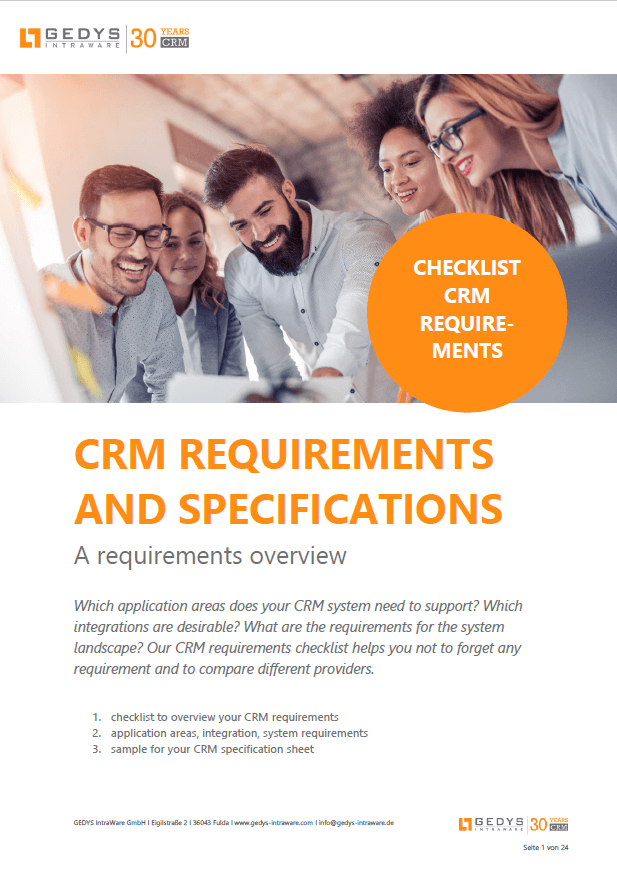Who needs CRM?
Who needs CRM is a question that many companies ask themselves. Isn’t it enough to maintain customer data in an Excel spreadsheet? The idea of customer management and customer loyalty is not new. Nevertheless, many rather small companies with self-knitted address lists live in Excel.
CRM is needed for centralized data storage and transparency
But at the latest if several people want to use the file at the same time, conflicts occur.
And if communication with the customer is required, the next problem is already waiting: What did the colleague, who is now on holiday, agree with the customer two weeks ago? Which information material has the customer already received? These are simple questions that are not so easy to answer without a CRM system.
These divisions need a CRM system to work efficiently.

Checklist: CRM Requirements
What requirements does your CRM have to meet? Fill in and you can easily compare which providers meet these requirements.
Direct customer contact needs CRM
Especially in the sales, marketing and service divisions, the focus is on contact with the customer. This is why the use of a CRM system is essential there:
CRM in Sales
Sales needs a structured sales process to achieve their goals. CRM in sales helps the sales person organize their tasks and prioritize customers and prospects. When planning and re-preparing visits, creating on-demand quotes, and tracking and achieving its sales goals.
CRM in Marketing
In the Marketing division, the correct coordination of the various marketing activities is of particular importance. CRM in marketing supports campaign management, for example: It helps the target group to select on the basis of collected customer data, to automate and document campaign processes and task processing and provides an overview of customer wishes, leads and their results.
CRM in service
CRM for Service & IT helps employees adapt to customers, identify their needs, and solve their problems. Integrated tools optimize complaint management, call centers, or services. Requests of all kinds, solutions and related correspondence are quick and easy to manage. Key figures are delivered live for service management.
Easier answers
By using CRM in the service, for example, the following questions become easy to answer:
can evaluate
What are the main topics of the service team? Which customers are in danger of escalating? How many open requests are there? And which incident has priority? Answers to these questions can be answered with modern CRM software. A very important prerequisite for controlling the service.
